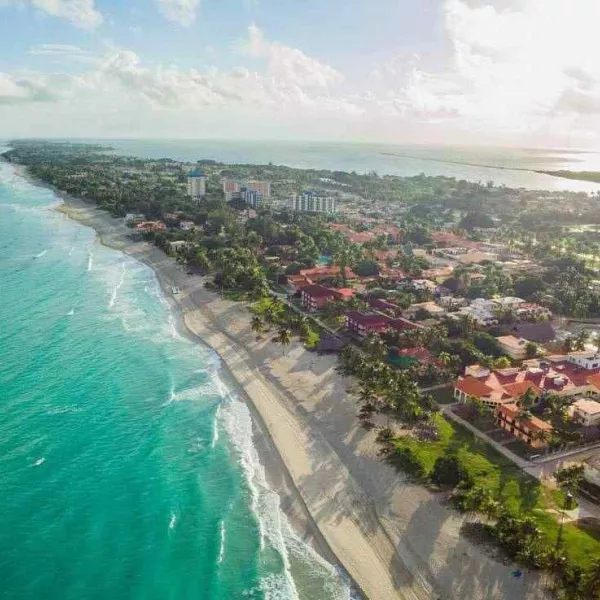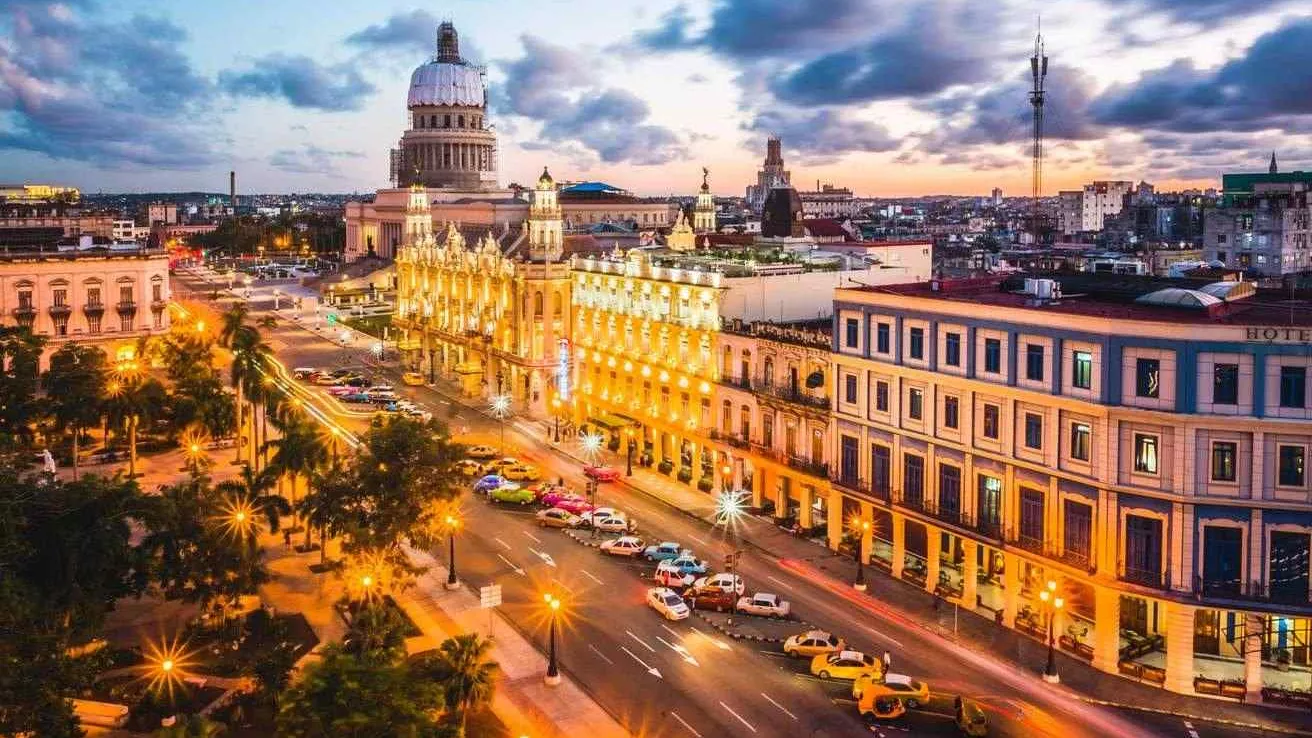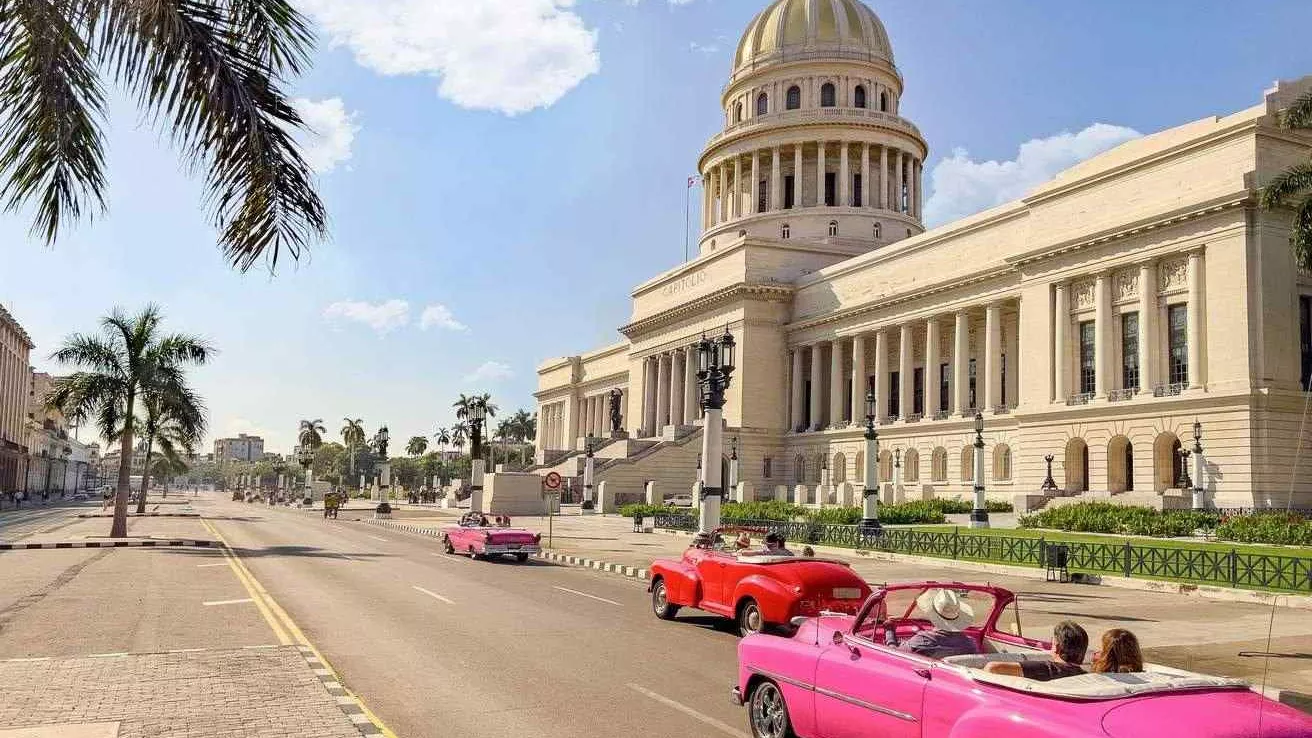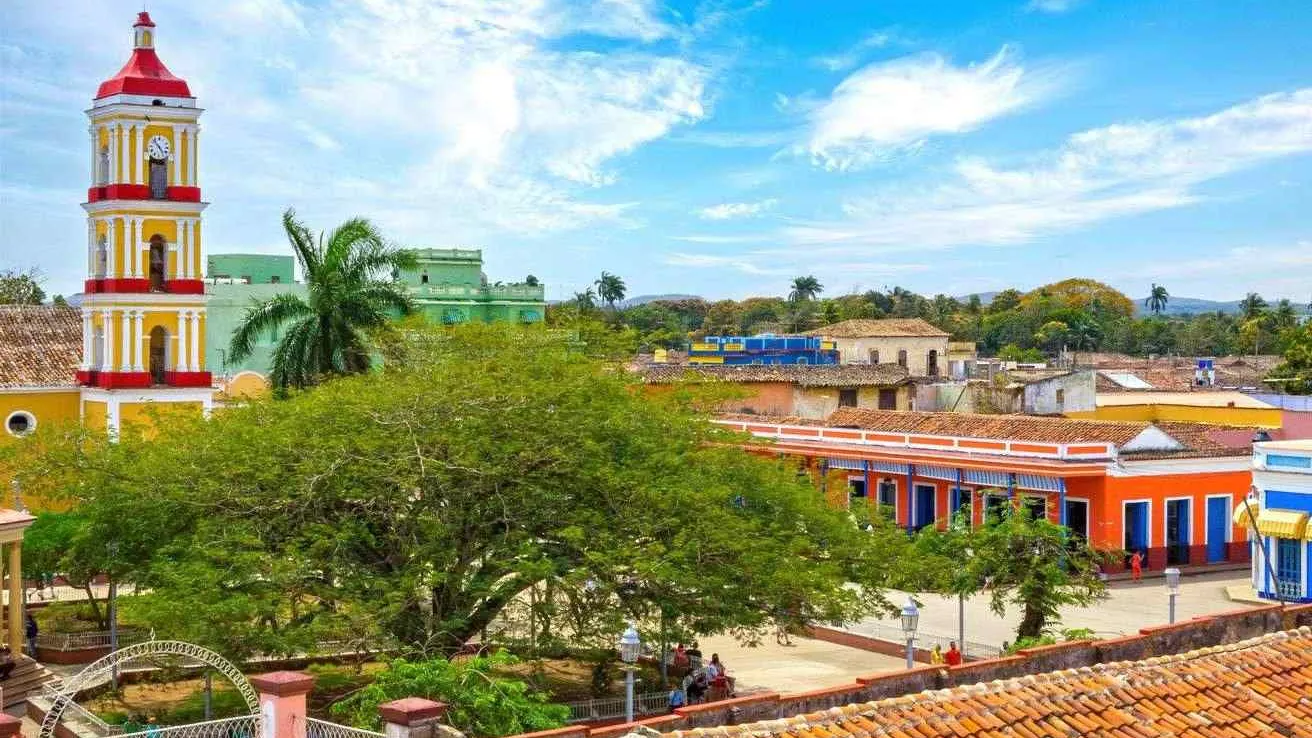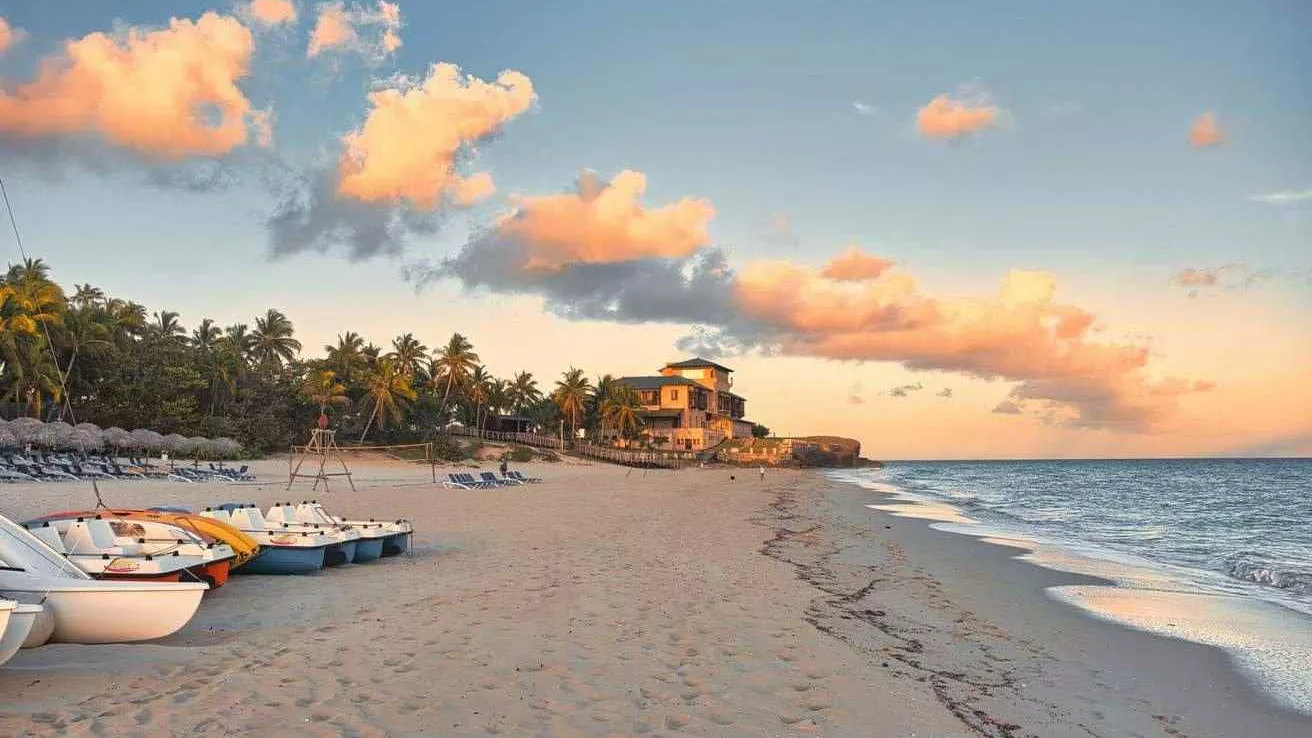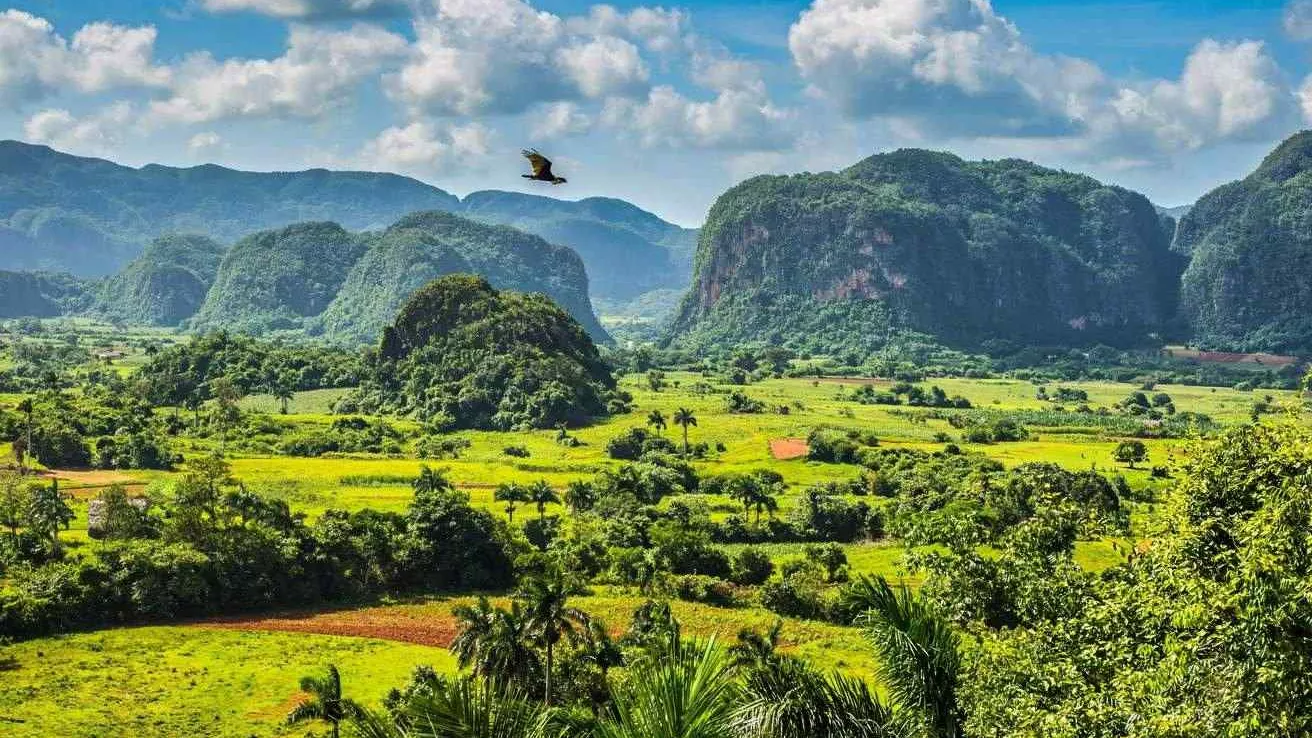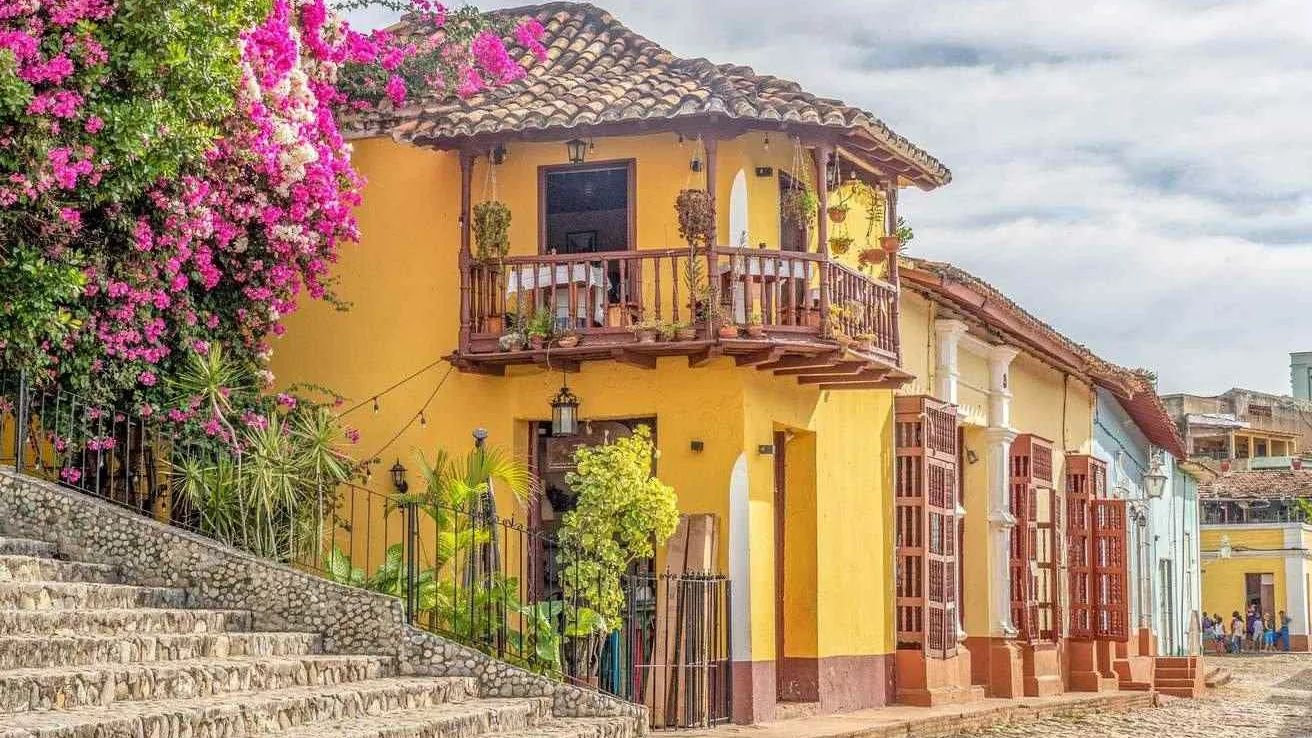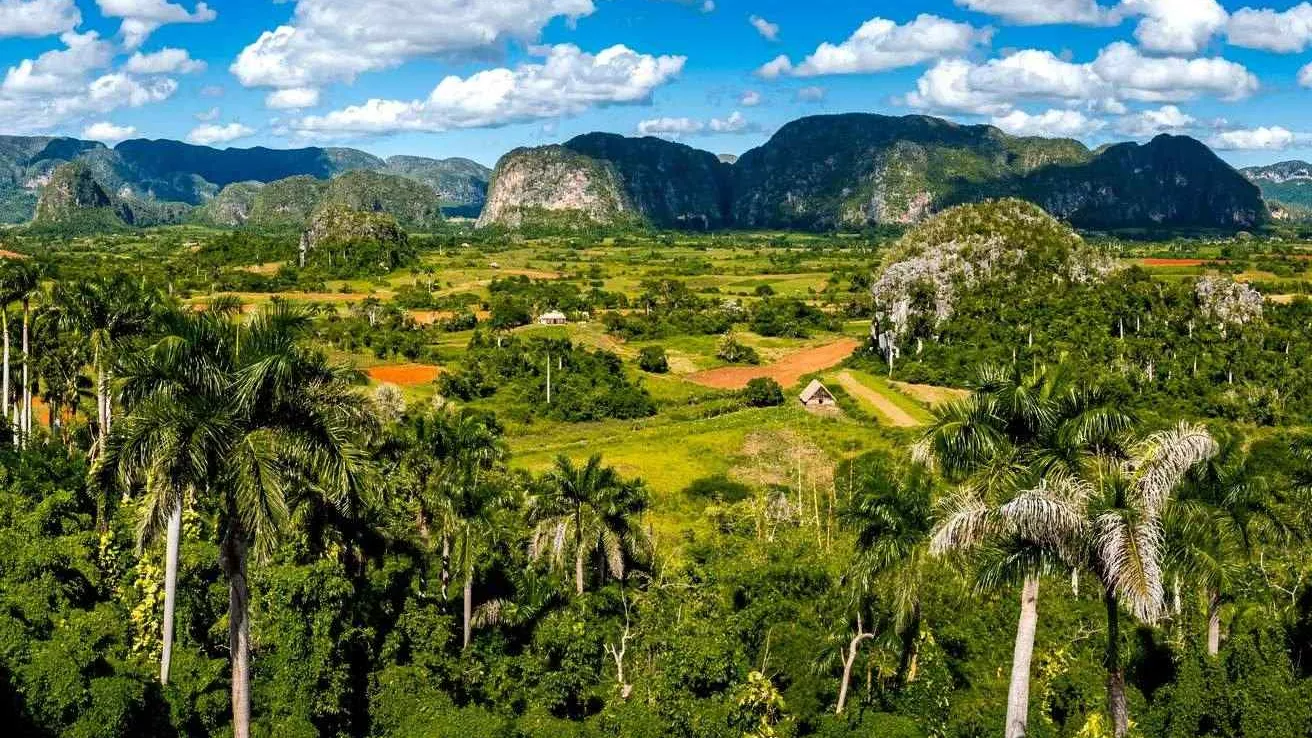Cuba, the crocodile island
Cuba also boasts a rich colonial past that has left its mark not only on Old Havana, but also on Trinidad, Santiago and Cienfuegos. So let yourself be swept away by the atmosphere of music, cigars and old American cars, and you'll be sure of some colorful memories after your visit to Cuba!
At present, the airline Air Caraïbes does not serve this destination.
Please visit our Partners page for your destination routing and subscribe to our newsletter to be kept informed!
We suggest the nearest destinations or routes to reach your final destination: Flights from Paris to the Dominican Republic or flights from Paris to Haiti.
Discover Cuba
More about Cuba
Useful information about travelling to Cuba
When to go to Cuba
Cuba travel memo
Min. 25°C / Max. 30°C
Havana's Jose Marti airport
Cuban Peso (CUC)
Paris -6h in summer & -5h in winter
Planning your trip to Cuba
Our tips for Cuba
European nationals
1. Passport and Visa:
European nationals need a visa to enter Cuba. This visa takes the form of a tourist card (tarjeta del turista), valid for a 30-day stay, and renewable once for a further 30 days. This card can be obtained from Cuban embassies and consulates, authorized travel agencies, or sometimes directly from the airline. In addition to the tourist card, travelers must have a passport valid for the duration of their stay in Cuba.
2. Health Insurance:
The Cuban authorities require all foreign visitors to have health insurance covering medical care in Cuba. Travelers should be prepared to present proof of this coverage upon arrival. If a traveler does not have valid insurance, they may be required to purchase it from a Cuban company at the airport.
3. Customs formalities:
European travelers must declare any sum over 5,000 USD (or the equivalent in other currencies) on entering or leaving the country. There are also restrictions on certain goods such as electronic devices, medicines and food products. It is advisable to consult Cuban customs regulations before departure to avoid any complications.
4. Safety and Travel Advice:
European nationals should consult their government's travel advice before visiting Cuba. Although the country is relatively safe for tourists, personal safety and health precautions are necessary. Medical services may be limited outside the major cities, so it is prudent to prepare accordingly.
Non-European nationals
1. Passport and Visa:
European nationals need a visa to enter Cuba. This visa takes the form of a tourist card (tarjeta del turista), valid for a 30-day stay, and renewable once for a further 30 days. This card can be obtained from Cuban embassies and consulates, authorized travel agencies, or sometimes directly from the airline. In addition to the tourist card, travelers must have a passport valid for the duration of their stay in Cuba.
2. Health Insurance:
The Cuban authorities require all foreign visitors to have health insurance covering medical care in Cuba. Travelers should be prepared to present proof of this coverage upon arrival. If a traveler does not have valid insurance, they may be required to purchase it from a Cuban company at the airport.
3. Customs formalities:
European travelers must declare any sum over 5,000 USD (or the equivalent in other currencies) on entering or leaving the country. There are also restrictions on certain goods such as electronic devices, medicines and food products. It is advisable to consult Cuban customs regulations before departure to avoid any complications.
4. Safety and Travel Advice:
European nationals should consult their government's travel advice before visiting Cuba. Although the country is relatively safe for tourists, personal safety and health precautions are necessary. Medical services may be limited outside the major cities, so it is prudent to prepare accordingly.
Health
For a healthy stay in Cuba, follow these tips. Drink bottled water to avoid water-borne diseases, and avoid ice cubes in your drinks. Protect yourself from the tropical sun with broad-spectrum sun cream, a hat and light clothing. Hydrate regularly, especially when visiting the great outdoors. Use mosquito repellents, especially at dusk. Carry a first-aid kit with basic medicines for headaches, pain and digestive disorders. Finally, eat in recommended places to avoid food poisoning.
Safety
To ensure your safety in Cuba, follow these recommendations. Avoid traveling alone at night in poorly lit or isolated neighborhoods. Keep your valuables safe and do not leave them unattended, especially on beaches and in vehicles. Be vigilant in tourist areas such as Havana and Varadero, where pickpockets can be active. Use official cab services rather than informal ones. Avoid demonstrations and political gatherings. In case of emergency, dial 106 to contact the police. Enjoy your stay in Cuba safely by following these tips.
What's the budget for a 1-week trip to Cuba?
For an economical stay, opt for affordable accommodation such as casas particulares (homestays) or hostels. These options will offer you an authentic, friendly experience for around €30 per night, or a total budget of €210 for a week. If you're looking for more comfort, choose mid-range hotels, offering more amenities and pleasant surroundings, for around €80 per night. The total budget for a week in this category is €560. For a luxurious experience, stay in 5-star hotels or all-inclusive resorts, with top-of-the-range services and luxury facilities, for around €250 per night. The total budget for a week in this category is €1,750.
There are several options for getting around Cuba. For an economical trip, use local public transport, such as buses and shared cabs, at an average cost of €10 per day. The total budget for a week is €70. If you prefer more freedom, rent a car to explore the island at your own pace, at around €60 per day. The total budget for a week's car rental is €420. For maximum comfort, hire a private driver or rent a luxury car for around €150 per day. The total budget for a week is €1,050.
Cuban cuisine is a real treat for the taste buds. For a budget trip, enjoy meals in paladares (private restaurants) or street food stalls for around €20 a day. The total budget for a week is €140. For a more refined culinary experience, dine in medium-quality restaurants for around €50 a day. The total budget for a week is €350. For an exceptional gastronomic experience, visit high-end restaurants offering creative and sophisticated dishes for around €100 per day. The total budget for a week is €700.
